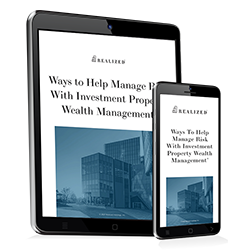Page 10 91 - 100 of 142
Do Bonds Help Manage the Overall Risk of an Investment Portfolio?

Excessive risk is equated with excessive returns. But not everyone has an interest in high-risk, high-return portfolios. For investors who want to manage risk in their portfolio, are bonds the answer? A financial advisor will likely say yes, but why? Let’s dig into the details.
How Can Liquidity Risk And Credit Risk Cause Insolvency?

Above-average returns always come with above-average risks. A thorough analysis can reveal the different types of risk that an investment may hold. Knowing the risks within an investment can help investors to manage those risks better.
What Is Leverage Risk?

Leverage allows investors to increase their exposure to a market, whether real estate, stocks, or commodities. If managed well, leverage can work in an investor’s favor. But some investors take on too much leverage. When the market goes against them, it amplifies the negative impact. In some extreme cases, an investor can be wiped out just from using too much leverage. Let’s see how leverage works and the risk it presents.
Which Characteristics Make a Security Most Subject to Liquidity Risk?

All investors face some level of potential liquidity risk. Some securities are more prone to liquidity risk than others. In an effort to manage liquidity risk, there are particular characteristics that you can look out for. Let’s walk through them.
What Is Structural Risk?

Contrary to what the name suggests, structural risk has nothing to do with the physical structure of the building. Structural risk refers to the financial structure of the investment and the rights that the structure provides to the individual participants. No real estate investment is invulnerable to risk, and investors must understand the potential dangers.
What Is Replacement Cost Risk?

Before investing in real estate, investors typically evaluate the property — which is a process that determines the economic value of an investment — and more accurate valuations can help investors make better decisions. When looking at cost, replacement cost is a common part of property valuation and investors look at this to determine whether the property is under or overvalued. Even with proper property valuation, there are many risks associated with investing in real estate.
What Is Idiosyncratic Risk & How Do You Calculate It?

Investing in real estate comes with various risks. The ability to categorize risk allows investors to better understand and analyze those risks. One such risk is called idiosyncratic risk. It is the risk associated with an individual property. In this article, we’ll dive into what idiosyncratic risk is and how it can be calculated.
What is Credit Migration Risk?

Credit migration risk is downgrade risk in the credit rating for a company or (bond) issuer. Investors can use credit migration to determine if a company’s credit is getting better or worse. In this article, we’ll explain what credit migration risk is and how to incorporate it into investment analysis.
What Is Funding Liquidity Risk?

Liquidity risk is associated with illiquid assets; meaning, those that are difficult to turn into cash quickly without generating a loss (in some cases). Funding liquidity risk is a specific type of liquidity risk. It is related to the funds or money coming in that a business has to cover its obligations. In this article, we’ll explore the differences between general liquidity risk and funding liquidity risk.
How Do You Value Property With Significant Entitlement Risk?

Entitlement risks can present special problems when acquiring and developing land. It’s difficult to know what curveballs city council members and other local government agencies may throw at developers. However, they aren’t the only ones involved when it comes to entitlement risk.
Page 10 91 - 100 of 142


